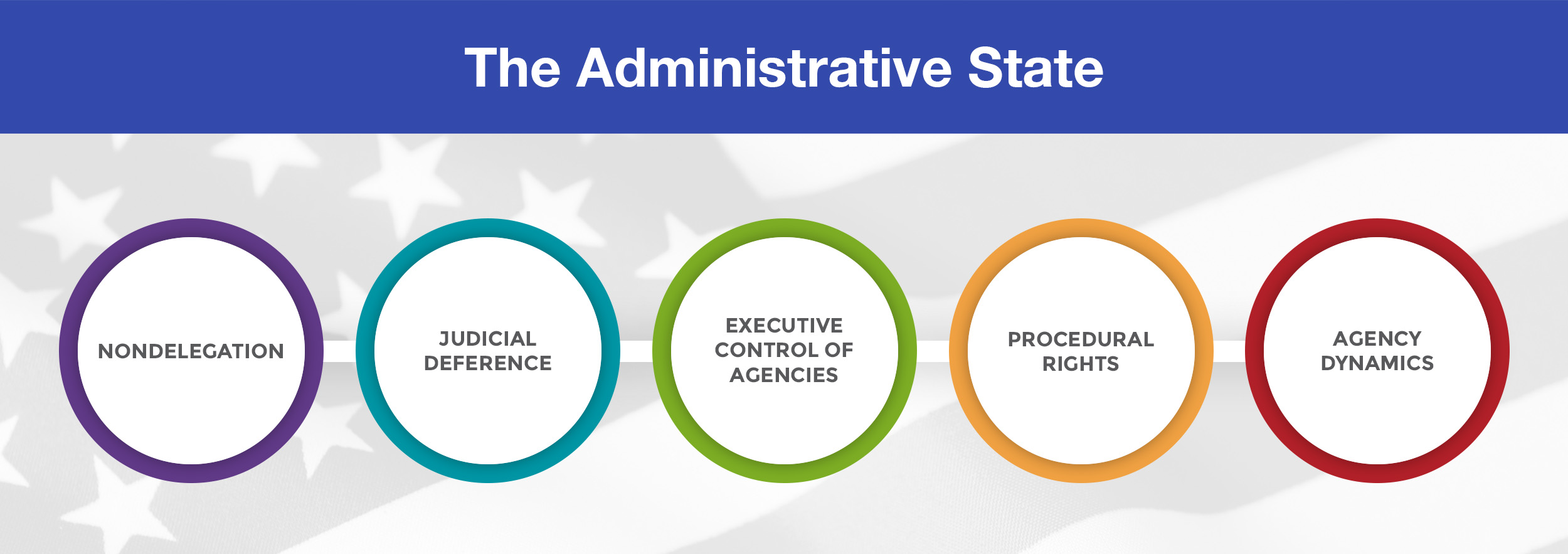Substantive law and procedural law
 From Ballotpedia - Reading time: 7 min
From Ballotpedia - Reading time: 7 min

| Administrative State |
|---|
| Read more about the administrative state on Ballotpedia. |
Substantive law and procedural law are terms used to describe and distinguish two different types of law:
- Substantive law establishes the rights and obligations that govern people and organizations; it includes all laws of general and specific applicability.
- Procedural law establishes the legal rules by which substantive law is created, applied and enforced, particularly in a court of law.
In the United States, both of these types of law are derived from a variety of sources, including common law, constitutions, legislatively enacted statutes, and judicial decisions.[1][2][3][4][5]
Background[edit]
West's Encyclopedia of American Law distinguishes substantive and procedural law in the following way:[3]
| Federalism |
|---|
| •Key terms • Court cases •Major arguments • State responses to federal mandates • Federalism by the numbers • Index of articles about federalism |
| “ |
Substantive law refers to all categories of public and private law, including the law of contracts, real property, torts, and Criminal Law. For example, criminal law defines certain behavior as illegal and lists the elements the government must prove to convict a person of a crime. In contrast, the rights of an accused person that are guaranteed by the Fourth, Fifth, and Sixth Amendments to the U.S. Constitution are part of a body of criminal procedural law.[6] |
” |
| —West's Encyclopedia of American Law, second edition (2008)[3] | ||
According to West's Encyclopedia, most substantive law in the United States was derived from common law prior to the 20th century, with judicial decisions and legal precedents as the primary sources of law. The encyclopedia states that the volume and nature of substantive law changed throughout the 20th century because of laws enacted by Congress and state legislatures.[3]
See also[edit]
External links[edit]
Footnotes[edit]
- ↑ Nolo, "Substantive Law," accessed September 11, 2017
- ↑ Nolo, "Procedural Law," accessed September 11, 2017
- ↑ 3.0 3.1 3.2 3.3 Free Dictionary, "Substantive Law," accessed September 11, 2017
- ↑ Legal Dictionary, "Substantive Law," accessed September 11, 2017
- ↑ Legal Dictionary, "Procedural Law," accessed September 11, 2017
- ↑ Note: This text is quoted verbatim from the original source. Any inconsistencies are attributable to the original source.
| |||||||||||
 KSF
KSF